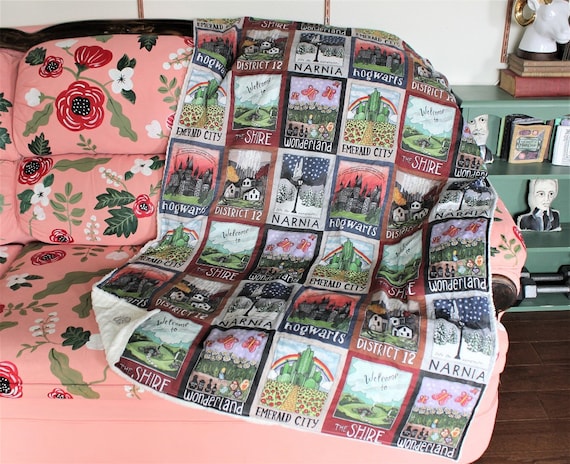So I finally finished watching The Handmaid’s Tale, which is weird actually because I thought I’d
fly through it. Seriously, I thought I’d be cancelling my Sunday evening plans
for ten weeks in a but somehow it didn’t happen that way. Real life gets in the
way doesn’t it, and I’ve been on holiday and stuff and so I ended up with a few
episodes lined up that I still hadn’t watched weeks after they aired which meant actually I got to do a little
bit of binge watching after all; I watched the last 3 episodes in one night
like a pro.
I also, because my love for this book (and for Margaret
Atwood generally) knows no bounds, expected to have more issues with it than I
did, and that’s weird for me because I hate it – capital letter HATE IT – when
an adaptation veers away from text that I love. I get all red faced and ragey
and start demanding answers from anybody who’ll listen even though nobody can
give them.
WHY DID THEY CUT THAT CRUCIAL PART AND HE DOESN’T LOOK LIKE
THAT AND THE TONE IS ALL WRONG IN THAT SCENE AND THAT NEVER EVEN HAPPENED WHY
CAN’T THEY JUST DO IT RIGHT.
I am a nightmare to
watch an adaptation with, seriously.
Handmaid’s deviates
massively from the original book. Massively. Oh my god. And yet, I didn’t really mind. I think part
of that was perhaps because I know Margaret Atwood didn’t mind, and was
actually heavily involved with the whole thing. She even has a cameo. Be still
my fangirl heart. Also though, because it was good. In a lot of ways it really works.
Let me talk at you about it. Get comfy. Oh, and here be
spoilers, by the way for both the book and the tv series, so if you’re not
familiar with one or both then stop reading now and go and rectify that.
The thing about Handmaid’s,
about Margaret Atwood’s work as a whole, is that it’s relevant and pretty
fucking terrifying in how extreme it seems at the same time as feeling entirely
plausible. So, The Handmaid’s Tale is
set in a future America renamed Gilead – a dystopian version of the world where
some environmental something or other has left most people infertile, where
women have zero rights whatsoever at all in any way and where those that are
able to conceive are forced to have children for the powerful men and their
wives – and, when you look at the state of the world right now, what’s going on
and the people in charge of The Big Decisions and the things that are being
done and said, then you can’t deny that this show was pretty well timed and
carries a pretty important message about what happens when the wrong people are
given too much power.
(Margaret Atwood published this book in 1985, drawing from
fucked up parts of actual history and taking them a step further. The woman in a genius.)
Anyway. I’m not here to talk about how much I loved the
book. Let’s not get too far off topic.
So, the differences.
WELL. First off, in the book you don’t actually find out
Offred’s name. Although you assume it’s June.
In the very first episode of the tv series she tells us that
you were right: she is June – that jumped out at me right away, and was the
first thing my Granny (who introduced my to Atwood’s work 20 years ago) and I
discussed: ‘Are you watching Handmaid’s?’ ‘They told us her name.’
I like it, actually – because of how Offred’s story is told
in the book, because it’s all in her head, a first person story, they had to do something different in order
for it to work on screen and by giving Offred back her identity, setting her up
as this defiant young woman with a name,
someone who refuses to be defined as the property of the Commander, it’s a
pretty strong opening. That said, some of the characterisation of Offred
niggled with me. The Offred in my head isn’t as headstrong as this Offred.
She’s lost everything, she’s trapped, she’s afraid: TV June is too….I don’t
know, too willing to speak her mind and take risks. I get why they changed her, why they made
her, for want of a better word, braver, but I kind of wish they hadn’t.
Sometimes, just sometimes, she didn’t sit right with me; with how Gilead is in
my head; her actions and reactions weren’t the actions and reactions of the
Offred I know, and it felt off – perhaps because television’s Offred left you
with a sense of hope that everything will be ok in the end that I didn’t get from the book – at least
not in the same way.
Serena Joy’s character is explored more in the tv series too
– I loved those flashbacks, all of them: Serena Joy, Offred, Moira, I loved
them all mostly because it’s backstory you don’t get to see in the book, and
it’s stuff I always wondered about. I’m often left, with books I love, wanting
more. I get lost in a story, I am a glutton. With The Handmaid’s Tale you get some of that more that I’m always left hoping for, answers to some of those
burning questions. Serena Joy, who
fascinated me in the book, gets her own sense of self in the tv show: you don’t
see that in the book, you don’t get to see her frustrations or her fears and
whilst she remains very much the villain, she’s much more human on screen than
she ever was on paper. She’s also young and The Commander is Joseph Fiennes and
that in and of itself is another step away from the book. Book Commander is not
hot.
If we’re talking about characters, let’s talk about Ofglen.
All Ofglen all the time please, not because she’s played by Alexis Bledel (OH
HAI RORY) but because as a character she’s awesome and I loved that we got to
find out what happened to her after the Eyes took her – that she’s a lesbian,
that she had an affair with a Martha and
what happened to the two of them once that was uncovered; all of Ofglen’s story
one she’d been taken was so hard to watch but it also hit home because this
book is set in a world that in some ways seems impossible and yet these things,
these exact things are happening to
women right now. Right now. Makes you think, doesn’t it.
Ofglen is used cleverly in the adaptation I think: a lot of
what happens in this story is shocking, horrific even (that scene in episode
one for example, or the knowledge that the previous Offred hung herself) but
you’re kind of removed from it a little
bit because you haven’t got any attachment. With Ofglen though, you know her;
she’s one of the good guys, so when you watch these inhumane things happen to
her, you really feel it. That actually
highlights the main difference for me between tv series and book: a lot more is
spelled out on screen; in the book so much is left to interpretation, there’s
so much more reading between the lines, so much more putting the book down and
thinking ‘did that actually just happen…’ – a lot of smoke and mirrors for
Offred and for the reader because Atwood excels as much in what remains unsaid
as she does in what she tells you, whereas in the adaptation you get to see
Gilead in all its fucked up unspeakably terrible glory. The book is so tense because you don’t know what’s
going to happen or why or what is really going on and you suspect that if
Offred so much as breathes at the wrong time she’ll end up on the wall. She has
more freedom in the series: you would not see her talking like she does on
screen in the book. No way. Those (quick) cosy chats with Nick? Wouldn’t
happen. The tv show is tense because
it's imaginable. They’ve brought the original story up to date, and instead of
setting it in a perhaps not too distant future, they’ve made it so the
flashbacks feel like they could happen now.
And that’s scary.
Also Moira, and the casting of Samira Wiley who is awesome,
by the way. That’s a shocker. Why? Because there are no black people in the
book because all the children of ham have
been sent to slavery so when you go into the whole thing knowing the book, Moira, and Offred’s husband Luke are not what
you expect to see. & I was a bit confused at first, like WHOA THIS IS A
MAJOR PLOT POINT THAT YOU HAVE MISSED OUT HERE HULU, but then actually, thinking about it, it’s
perhaps a more relevant look at racism, especially when you look at the whole
Luke backstory: I kind of get why they did it.
OH! And don’t let me talk about Janine – again her story is
different in the book to the tv show and she broke my heart. It hurts me to even think about her, from episode
one all the way through to the finale, it hurts.
I could dissect it all, episode by episode – this changed
and this was added and this was taken away - and usually that’s what I would
do (probably quite grumpily) but I kind
of don’t want to. I’ve picked out the things that stood out to me, and I guess,
well it might not be loyal to the
original text, but it’s definitely loyal to the message and I really really liked it. The final episode, WOW.
That’s the power of television I guess, a different kind of power to the power
of books because there were scenes in that finale that gave me goosebumps, that
will stay with me, that make me wonder where they’re going to go with a second
series of a book that I loved that I thought had ended. I’m looking forward to
finding out.









